第65章 AMBASSADORS AND MINISTERS(4)
Nobody but an ambassador and minister gets into that brilliant circle. On one occasion Mr. Choate saw me standing with the other guests outside the charmed circle and immediately left the diplomats, came to me, and said: "I am sure you would like to have a talk with the queen." He went up to Her Majesty, stated the case and who I was, and the proposition was most graciously received.
I think the royalties were pleased to have a break in the formal etiquette. Mr. Choate treated the occasion, so far as I was concerned, as if it had been a reception in New York or Salem, and a distinguished guest wanted to meet the hosts. The gold-laced and bejewelled and highly decorated diplomatic circle was paralyzed.
Mr. Choate's delightful personality and original conversational powers made him a favorite guest everywhere, but he also carried to the platform the distinction which had won for him the reputation of being one of the finest orators in the United States.
Choate asked at one time when I was almost nightly making speeches at some entertainment: "How do you do it?" I told him I was risking whatever reputation I had on account of very limited preparation, that I did not let these speeches interfere at all with my business, but that they were all prepared after I had arrived home from my office late in the afternoon. Sometimes they came easy, and I reached the dinner in time; at other times they were more difficult, and I did not arrive till the speaking had begun. Then he said: "I enjoy making these after-dinner addresses more than any other work. It is a perfect delight for me to speak to such an audience, but I have not the gift of quick and easy preparation. I accept comparatively few of the constant invitations I receive, because when I have to make such a speech I take a corner in the car in the morning going to my office, exclude all the intruding public with a newspaper and think all the way down. I continue the same process on my way home in the evening, and it takes about three days of this absorption and exclusiveness, with some time in the evenings, to get an address with which I am satisfied."The delicious humor of these efforts of Mr. Choate and the wonderful way in which he could expose a current delusion, or what he thought was one, and produce an impression not only on his audience but on the whole community, when his speech was printed in the newspapers, was a kind of effort which necessarily required preparation. In all the many times I heard him, both at home and abroad, he never had a failure and sometimes made a sensation.
Among the many interesting characters whom I met on shipboard was Emory Storrs, a famous Chicago lawyer. Storrs was a genius of rare talent as an advocator. He also on occasions would make a most successful speech, but his efforts were unequal. At one session of the National Bar Association he carried off all honors at their banquet. Of course, they wanted him the next year, but then he failed entirely to meet their expectations.. Storrs was one of the most successful advocates at the criminal bar, especially in murder cases. He rarely failed to get an acquittal for his client. He told me many interesting stories of his experiences.
He had a wide circuit, owing to his reputation, and tried cases far distant from home.
I remember one of his experiences in an out-of-the-way county of Arkansas. The hotel where they all stopped was very primitive, and he had the same table with the judge. The most attractive offer for breakfast by the landlady was buckwheat-cakes. She appeared with a jug of molasses and said to the judge: "Will you have a trickle or a dab?" The judge answered: "A dab." She then ran her fingers around the jug and slapped a huge amount of molasses on the judge's cakes. Storrs said: "I think I prefer a trickle."Whereupon she dipped her fingers again in the jug and let the drops fall from them on Storrs's cakes. The landlady was disappointed because her cakes were unpopular with such distinguished gentlemen.
Once Storrs was going abroad on the same ship with me on a sort of semi-diplomatic mission. He was deeply read in English literature and, as far as a stranger could be, familiar with the places made famous in English and foreign classics.
He was one of the factors, as chairman of the Illinois delegation, of the conditions which made possible the nomination of Garfield and Arthur. In the following presidential campaign he took an active and very useful part. Then he brought all the influences that he could use, and they were many, to bear upon President Arthur to make him attorney-general. Arthur was a strict formalist and could not tolerate the thought of having such an eccentric genius in his Cabinet. Storrs was not only disappointed but hurt that Arthur declined to appoint him.
To make him happy his rich clients--and he had many of them--raised a handsome purse and urged him to make a European trip. Then the president added to the pleasure of his journey by giving him an appointment as a sort of roving diplomat, with special duties relating to the acute trouble then existing in regard to the admission of American cattle into Great Britain. They were barred because of a supposed infectious disease.